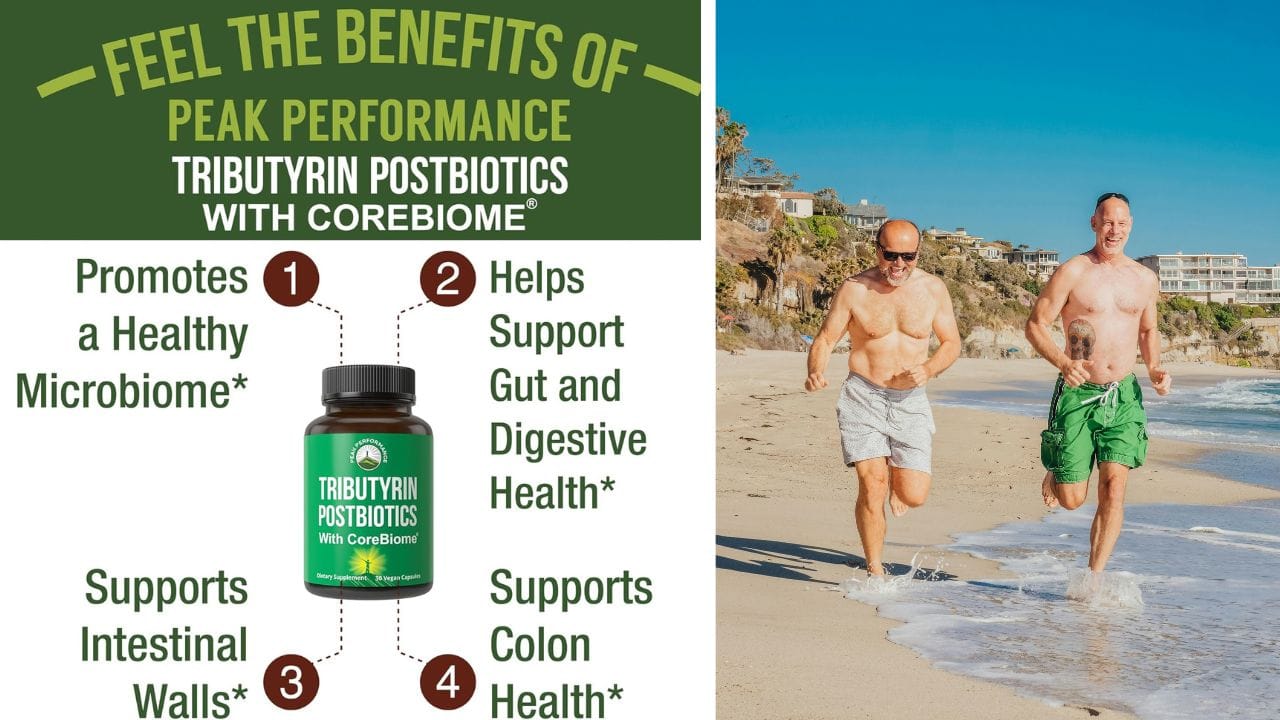Unlocking the Potential of Postbiotics: A Health Revolution
These bioactive compounds, derived from probiotic bacteria fermentation, play a key role in nurturing a balanced microbiome and fortifying our well-being!

Key Takeaways:
- Postbiotics are a new frontier in promoting gut health and overall wellness.
- They offer a range of health benefits, including immune support, anti-inflammatory properties, and potential protection against various diseases.
- Unlike probiotics and prebiotics, postbiotics are non-living byproducts that provide a safer alternative for individuals with compromised immune systems.
What Are Postbiotics?
You've likely heard of probiotics and prebiotics, but postbiotics might be the new term on the block for you. Postbiotics are the non-living byproducts produced during the fermentation process that occurs when probiotics consume prebiotics. These substances include enzymes, peptides, polysaccharides, cell wall fragments, and organic acids. They are gaining attention for their health-promoting properties without the need to introduce live bacteria into the body.
The Gut Health Guardian
The gut is more than just a digestion center; it's a complex ecosystem that plays a crucial role in overall health. Postbiotics contribute to this ecosystem by supporting the growth of beneficial bacteria and maintaining a balanced gut microbiota. This balance is essential for proper digestion, nutrient absorption, and a robust immune system. By nurturing gut health, postbiotics can help ward off digestive disorders and enhance your body's natural defenses.
Immune System Empowerment
One of the most significant benefits of postbiotics is their ability to modulate the immune system. They can enhance the body's response to pathogens by stimulating the activity of immune cells. Postbiotics also have the potential to reduce the severity of allergic reactions and may play a role in preventing autoimmune diseases. This immune system support is particularly beneficial during the cold and flu season or for individuals with weakened immune systems.
The Anti-Inflammatory Agents
Chronic inflammation is a root cause of many diseases, including heart disease, diabetes, and arthritis. Postbiotics have shown promising anti-inflammatory properties that could help manage and reduce the risk of these conditions. By inhibiting the production of pro-inflammatory cytokines, postbiotics can help soothe inflammation in the body and promote healing.
A Friend to Your Heart
Heart health is a major concern for many, and postbiotics could be a valuable ally. Research suggests that certain postbiotics can lower bad cholesterol levels and reduce blood pressure, which are key factors in preventing heart disease. By incorporating postbiotics into your diet, you may be taking a proactive step towards maintaining a healthy heart.
The Weight Management Partner
Obesity is a growing health issue worldwide, and managing weight can be a complex challenge. Postbiotics may offer a helping hand by influencing the hormones that control appetite and metabolism. They can also improve insulin sensitivity, which is crucial for maintaining a healthy weight and preventing type 2 diabetes.
Skin Health and Postbiotics
The benefits of postbiotics extend beyond the gut. They can also impact skin health by promoting the growth of beneficial skin bacteria and reducing the prevalence of harmful bacteria that can cause acne and other skin conditions. Postbiotics may also enhance skin hydration and elasticity, contributing to a healthier, more youthful complexion.
The Safety Profile of Postbiotics
One of the advantages of postbiotics over probiotics is their safety. Since they are non-living, there's no risk of them growing uncontrollably or causing infections, which can be a concern with probiotics, especially in immunocompromised individuals. Postbiotics offer a safer alternative for those who want the benefits of a balanced gut microbiota without the risks associated with live bacteria.
Incorporating Postbiotics into Your Diet
Adding postbiotics to your diet can be as simple as consuming fermented foods like yogurt, kefir, sauerkraut, and kombucha. These foods naturally contain postbiotics as a result of the fermentation process. Additionally, postbiotic supplements are becoming more available for those looking for a more concentrated source.
The Future of Postbiotics Research
While the current understanding of postbiotics is promising, there is still much to learn. Ongoing research aims to uncover the full potential of postbiotics and how they can be optimized for health benefits. As science progresses, we can expect to see more targeted postbiotic products and therapies designed to address specific health concerns.
Summary
Postbiotics are emerging as a powerful tool in the quest for better health. They offer a range of benefits, from supporting gut health and the immune system to reducing inflammation and aiding in weight management. As research continues to evolve, the role of postbiotics in health and disease prevention is likely to expand, making them a key component of a holistic approach to wellness.
With their favorable safety profile, postbiotics present an appealing alternative for individuals unable to use probiotics. Click the link below to discover the postbiotics we've chosen to optimize health benefits.

